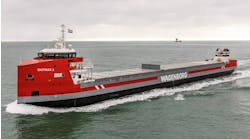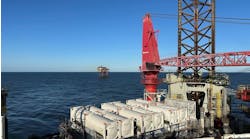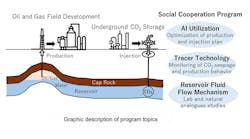Editor's note: This column first appeared in the May-June 2023 issue of Offshore magazine. Click here to view the full issue.
By David Paganie, Chief Editor
The critical role of oil and gas supply for an orderly energy transition has never been in question to those that work in the industry. But in recent years, policy and social changes, and investor ESG requirements, have influenced structural changes within many operating companies. Part of the changes are related to corporate marketing and external messaging. Many companies have changed logos, branding, and messaging to support new strategic objectives.
One important message that has been seemingly muted within these communication efforts is the critical role of oil and gas in the energy transition. This is changing, as the geopolitical events of 2022 have reinforced the need for balance in energy security, affordability, and sustainability. Fossils fuels still account for about 80% share of primary energy needs, and oil demand is expected to reach a record high by the end of this year.
It was encouraging to see oil and gas technology presentations as a big part of the agenda of this year’s Offshore Technology Conference. One session addressed the role of deepwater in the energy transition. All the panelists, including three from operators – BP, Petrobras, and Hess – pointed to oil and gas as the core component of their energy investment plans. BP is transforming into an integrated energy company, but still plans to invest up to $8 billion of new capital through 2030 on oil and gas short-cycle, quick return opportunities with low carbon emissions, and on existing assets that can benefit from life extension.
Petrobras has increased its planned oil and gas E&P investments to $64 billion for the period 2023 – 2027, up from its previous five-year investment plan. The strategic plan calls for up to 18 new FPSOs, and some may be equipped with all-electric topsides that could lower emissions by up to 30%. Both Petrobras and BP are investing in technologies to lower the carbon footprint of their oil and gas assets.
Hess has allocated $3.7 billion this year for its oil and gas E&P capital and exploration budget, with more than 80% of it directed to its developments offshore Guyana. The operator strategically targets what it considers to be high margin and low carbon intensive prospects in high growth basins.
Shell talked at OTC extensively about how it adapted to a new business environment to bring its Vito project in the deepwater Gulf of Mexico to first production earlier this year. And now it is applying lessons from Vito to Whale, its next deepwater GoM project.
The best way forward for deepwater to be considered more sustainable – and essential to long-term corporate investments plans – is to co-locate the resources with renewables and CCS, according to Julie Wilson with Wood Mackenzie. She calls these co-located basins “energy super basins” of the future.
Still, oil and gas continue to be core to the traditional operator’s investment strategy; the difference today is the level of comfort in voicing the corporate imperative.




